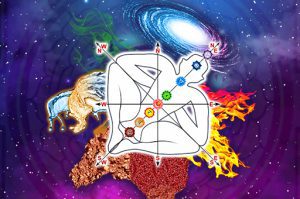
What Impatience Means

Impatience is the behavior of not being able to wait for something or the wanting or eagerness to do something without waiting, or simply demonstrating that you do not want to wait.
An impatient person wants to finish tasks quickly at any cost and gets overwhelmed due to obstacles and delays. Such a person makes decisions based on how fast something will be executed rather than how relevant or effective it would be. He finds it difficult to work with individuals who are slow because he believes that it is a waste of time, and thus he will make every effort to rush these people or go past them. He continues to collect completed tasks without completing them and can be compared to a bull in a marketplace running helter-skelter but not knowing where to go.
An impatient attitude, in whatever form it manifests itself, always results in a dysfunctional pattern that affects multiple aspects of a person’s life. As a result, this is a behavioral characteristic that one must address sooner or later.
What Causes Impatience

People are impatient because of some of the reasons below:
- They focus on the outcome rather than the process and that makes them get into pleasure of fulfilment and fear of non-fulfilment. These emotions make them control the outcome.
- They get trapped in the illusion of time. They feel they are late in life as compared to their peers. This makes them rush in life fearing that they are running out of time.
- They have a fear of ‘missing out’. Probably they have missed opportunities. This belief makes them rush for that fulfilment lest it slips away.
- They get overwhelmed with the tasks in hand and focus on finishing them in order to cast them away at any cost.
- They lack faith in self and God for transforming people and situations and hence opt for the quickest route.
Impatience vs Frustration
Impatience should not be confused with frustration which happens because you feel that life is not happening the way you think it should happen, or you feel overwhelmed with the multitude of tasks at hand. In these cases the typical reaction is to act impulsively and feel irritable because you feel that you have no time to complete these or your plans have been thwarted in some way. The restlessness resulting from these experiences is more linked to disappointment instead. It is important to differentiate an impatient behavior from restless behavior caused in most instances by demanding external situations of stress.
Impact of Impatience in Life
People who are impatient tend to dismiss their creativity. They perform the task with the aim of finishing it rather than churning it out like a nice dish that displays their true selves. Thus they are often dissatisfied with their performance and end of re-doing most of the things in different periods of time. Since they tend to push people around them, they end up not getting the best out of them also and feel discontent with their performance also eventually. They are less appreciative of their colleagues and subordinates and family as they focus on work or goals accomplished rather than the person they are.
Contrary to popular belief, impatience does not result in faster results; rather, people who are impatient spend more time and resources completing a task because they lack the patience to plan it ahead of time.
They lack joy and happiness in life because impatience disconnects them from the present in the illusion that they require something or someone outside of themselves for fulfillment, and thus they miss out on the joy of being themselves.
Overcoming Impatience
Meditation is the medicine for those suffering from impatience. It helps them visualize their behavior as a witness and correct what is needed. It makes them turn inwards towards their true nature that is truth, compassion and bliss.
Increasing self-awareness is essential for dealing with impatience in all situations. Looking at the big picture rather than focusing on minor annoyances and taking a longer view when making decisions helps you to be more aware of who you are and where you are now. When you start taking every act as a realization and expression of your nature rather than as a means to an end, you start being present every moment and that dissolves the illusion of time. Thus you need to enjoy the journey as much as the destination in realization that as a soul you are being a human and the intention of life is self realization and thus all goals and targets are just stepping stones in this process. Thus as a soul you own nothing and are everything. The key to a calm behaviour is being aware and present in everything that you do and experience every moment.
From an energetic standpoint, you must work on balancing your Vishuddha chakra, which is your energetic center associated with time management. This is where purity resides which is above all definitions of good/bad, right/wrong, me/you, etc. When you do it, you will begin to feel more at ease with situations and will be able to deal with them with truth and wisdom, allowing you to make the best decisions based on your true beingness.







